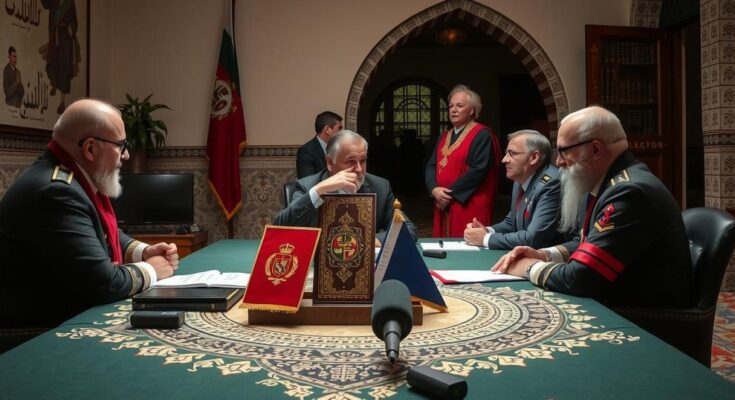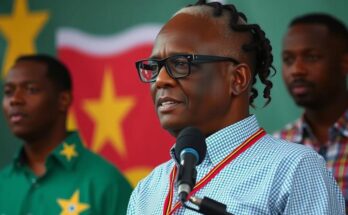Rival Libyan factions resumed talks in Morocco to address a political deadlock, following a decade of turmoil since Qaddafi’s fall. The discussions focus on reconciling the High Council of State in Tripoli and the House of Representatives in Benghazi, aiming for credible elections and national unity amid ongoing instability.
Delegations from two rival Libyan institutions have reconvened for discussions in Bouznika, Morocco, as they seek to resolve a prolonged political impasse and avert further national instability. Following a decade of upheaval since the overthrow of Muammar Qaddafi in 2011, Libya remains divided between eastern and western administrations that have been at odds since 2014.
The current negotiations involve the High Council of State, headquartered in Tripoli, and the House of Representatives, based in Benghazi. At the onset of the talks, Moroccan Foreign Minister Nasser Bourita emphasized the necessity for collaboration among Libyan factions to maintain national unity and prepare for legitimate elections. He remarked, “The numerous international and regional conferences on Libya will not replace the inter-Libyan dialogue which has credibility and ownership.”
The political framework designed to end years of conflict has faced significant setbacks since a planned election in December 2021 did not materialize due to disputes regarding candidate eligibility. Elected as the national parliament in 2014, the House of Representatives was tasked with overseeing a political transition. The 2015 Libyan Political Agreement, established in Skhirate, Morocco, resulted in the formation of the High State Council as a secondary advisory chamber. Nevertheless, the establishment of a rival government by the House of Representatives led to increased divides, highlighting the fragility of the political landscape.
Since the 2011 NATO-backed uprising that led to the ousting of longtime leader Muammar Qaddafi, Libya has experienced significant political fragmentation. By 2014, the country split into two administrations, with the High Council of State in Tripoli representing the west and the House of Representatives in Benghazi governing the east. This division has been exacerbated by the failure of various attempts to unify the governance structures and hold elections, notably culminating in the collapse of electoral plans set for December 2021. The ongoing talks in Morocco aim to forge a path towards political resolution and stability.
The resumption of talks between rival Libyan institutions underscores the urgent need for a solution to the political standoff that has plagued Libya for nearly a decade. With past elections failing and divisions deepening, the call for credible inter-Libyan dialogue remains critical for achieving lasting peace and unity. Morocco’s mediation efforts exemplify regional engagement in addressing Libya’s complex political challenges.
Original Source: www.arabnews.com



